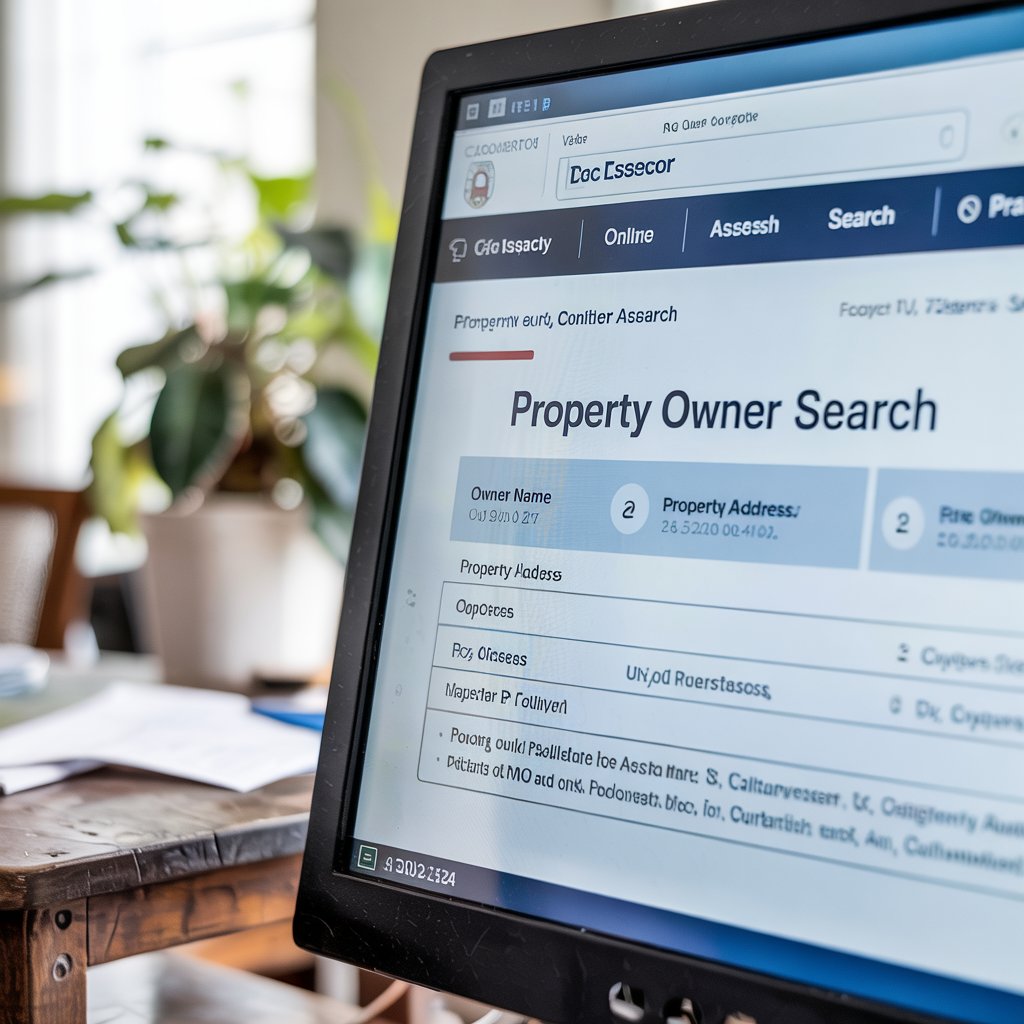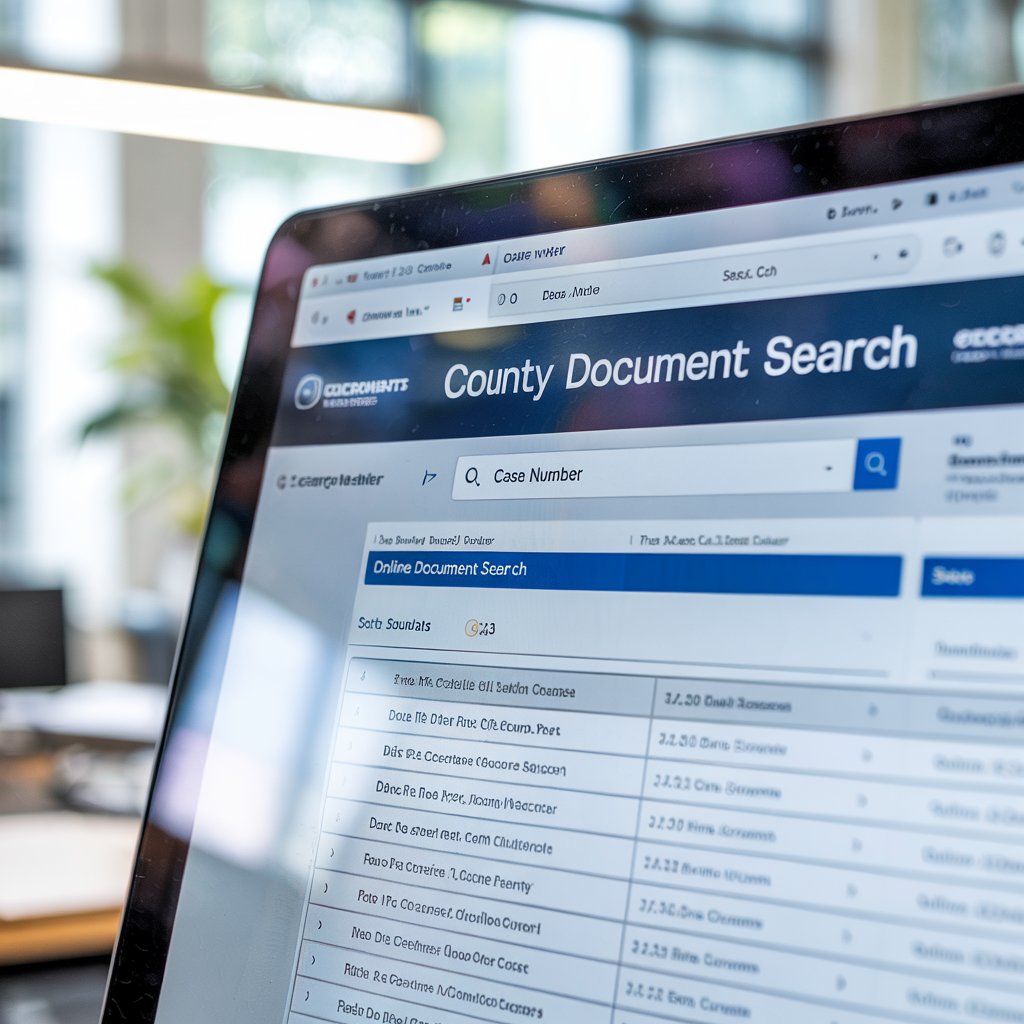Ever driven past a property – maybe an intriguing off-market house, a vacant lot ripe for development, or even a seemingly abandoned building in a prime location – and thought, “If only I knew who owned this place?” As a real estate agent, knowing how to find out owners of a property quickly and accurately isn’t just a useful skill; it’s fundamental to unlocking hidden inventory and closing more deals.
Struggling to find off-market listings your competitors miss? Or need to contact the owner of that perfect, unlisted property for your buyer? You’re in the right place. In fact, leveraging verified owner data can significantly boost your off-market success – some studies suggest by up to 42%, often securing properties at 20-30% below market value.
But finding the right property owner information can be tricky. Records can be outdated, owners might be shielded by LLCs, and contact details aren’t always readily available.
Don’t worry! With over 10 years of experience helping hundreds of realtors and investors successfully find property owner details and close deals, we know the hurdles agents face. We’ll show you exactly how to navigate the search effectively – without breaking a sweat.
Key Takeaways
- Mastering how to find out owners of a property is crucial for real estate success, especially for uncovering off-market deals.
- Free methods like public records and targeted neighbor outreach are often effective starting points for agents.
- Fellow real estate agents and title companies offer deeper insights into property ownership records.
- Paid platforms provide powerful tools for agents and investors needing frequent, detailed property ownership lookups.
- Always approach your property owner search and subsequent contact ethically and respectfully, adhering to professional standards.
Why Finding Out Property Owners is Crucial for Real Estate Success
It’s straightforward: you can’t approach a potential deal or make an offer without knowing who to contact. For real estate agents, mastering how to find property owner information is vital for several key activities:
- Prospecting for Off-Market Real Estate Deals: This is the big one. Imagine your buyer wants a home in a specific neighborhood where nothing is listed. Or perhaps you’ve identified a property perfect for a developer client, but it’s not for sale. Knowing how to find the owner allows you to make a direct, targeted approach, potentially securing a deal before it ever hits the MLS. Agent Tip: This is key for farming specific neighborhoods and identifying potential pocket listings.
- Supporting Home and Property Services: While not direct agent work, understanding this helps you network. If you work with roofers, landscapers, or inspectors, they rely on identifying property owners for targeted marketing and service calls. Knowing the process helps you be a better resource for your network.
- Resolving Property-Related Issues: Sometimes, you or your client need to contact an owner about practical matters – a boundary dispute, an overhanging tree, concerns about a neglected vacant property impacting curb appeal, or coordinating access. Finding the owner is the essential first step.
- Historical or Preservation Interests: Agents specializing in historical properties often need to identify owners to discuss preservation easements, potential landmark status, or specialized marketing approaches.
- General Due Diligence & Curiosity: Before investing significant time in pursuing a property (even just for a CMA), verifying ownership is a basic due diligence step. And yes, sometimes you’re just professionally curious about a notable property in your market!
How to Find Property Owners for Free (or Low Cost): The Agent’s Toolkit
Let’s start with the most accessible and budget-friendly methods to find property owner details. These are often your first line of attack.
The Direct Approach: Knocking and Neighbor Outreach
- Knocking on the Door: It sounds basic, but if the property is occupied, a polite knock can yield results. Introduce yourself professionally, explain briefly why you’re inquiring (e.g., “I’m a local real estate agent, and I have clients interested in this area/type of property…”). Even if the owner isn’t interested in selling, it’s a contact opportunity. Leave your business card. Agent Tip: Always prioritize safety and be mindful of “No Soliciting” signs or potentially unreceptive occupants.
Asking the Neighbors: If knocking isn’t feasible (vacant property, feeling hesitant), chat with adjacent neighbors. They often know who owns the property, especially in tight-knit communities. Explain your professional interest respectfully. Agent Scenario: For that overgrown vacant lot agents often scout, chatting with the adjacent homeowner might reveal the owner moved out of state and provide a forwarding address the tax records missed. Pitfall: Neighbors might be reluctant to share info or might have outdated information. Always be courteous.

Unlocking Public Records: County Tax Assessor
This is a cornerstone for any property owner search. The Tax Assessor’s office maintains records for property valuation and tax collection purposes.
- Information Typically Available:
- Current Owner’s Name
- Owner’s Mailing Address (Note: May not be the property address)
- Property Tax Information (Assessed Value, Tax Amount)
- Potential Tax Liens
- Assessor’s Parcel Number (APN) – a unique property identifier crucial for searches.
- How to Access: Most counties now offer online databases. Search “[County Name] County Tax Assessor” or similar terms. You can usually search by property address or APN.
- Agent Pitfall: Relying solely on the listed mailing address. It could be a P.O. Box, an old address, or an address for a property manager or attorney. It’s a starting point, but may require further skip tracing.
- Quick Anecdote: We worked with an agent trying to contact the owner of a property listed under an LLC with only a P.O. Box in the tax records. By cross-referencing the mailing address with other public records, we eventually linked it back to the managing member’s primary residence address, enabling contact.

Digging Deeper: County Recorder/Clerk’s Office
This office is the official keeper of documents related to property ownership transfers and encumbrances.
- Information Typically Available:
- Current and Past Owner Names (via Deeds)
- Recorded Deeds (Grant Deeds, Quitclaim Deeds, etc.)
- Mortgages and Deeds of Trust
- Liens (Mechanic’s Liens, Judgment Liens)
- Easements and Covenants
- How to Access: Many counties are digitizing records, but you might need to visit in person or navigate a less user-friendly online portal. Searching here can sometimes require more specific information (like exact names or document numbers). There might be small fees for copying documents.
- Agent Pitfall: Records can be complex and time-consuming to search through, especially for properties with long or complicated histories. Understanding how to read a deed is essential.

Leveraging Local Libraries & Online Databases (Free Tier)
- Local Library: Librarians can be great resources! They may have access to historical archives, old city directories, digitized maps, or specialized databases that could hold clues about property ownership history. Usefulness varies greatly by location.
- Free Online Searches: General search engines (Google, Bing) and free “people search” or reverse address lookup sites (e.g., Whitepages free tier) can sometimes provide occupant names or associated individuals. Caution: Be wary of free search site accuracy, frequent upsells to paid tiers, and potentially “suspicious skip tracing sites” that could contain malware.
Utilizing State Parcel Maps & Google Maps
- State Parcel Maps: Some states offer online Geographic Information System (GIS) or parcel maps. These visually display property boundaries and can include owner names, APNs, assessed values, and zoning information. Search “[Your State Name] Parcel Map Viewer”. Availability and detail vary by state.

- Google Maps: While it won’t directly show ownership, using Street View and Satellite View is invaluable for confirming the property’s exact location, appearance, condition, and surrounding environment. This visual context is a crucial first step before diving into records.

How Agents Can Help You Find Property Owner Information (Leveraging Professional Resources)
If free methods hit a wall, tap into resources commonly used by real estate professionals.
Consulting a Fellow Real Estate Agent
- MLS Access: Agents often have access to integrated public record data within their Multiple Listing Service (MLS). While primarily for listed properties, these tools can often pull ownership details for off-market properties using the address or APN.
- Networking Power: Don’t underestimate collaboration. Another agent in your brokerage or network might already know the owner or have insights about the property.
Partnering with a Title Company for a Title Search
This is often considered the most definitive way how to find out who owns a house or property. Title companies specialize in researching property history to ensure clear title for transactions.
- Comprehensive Data: A title search goes deep, uncovering:
- Verified Current Owner(s)
- Complete Property History (chain of title)
- Recorded Mortgages and Liens
- Easements, Restrictions, and Encroachments
- Tax Status and Records
- Property Details (Lot size, sometimes square footage)
- Access: Build relationships with reliable title representatives. They can often provide preliminary property profiles or “ownership and encumbrance” (O&E) reports quickly, sometimes as a professional courtesy or for a small fee, which is less extensive (and cheaper) than a full title insurance policy search.
- Agent Tip: A trusted title rep is an invaluable partner for verifying ownership, especially before investing significant time or resources into a potential deal.
Advanced Property Ownership Lookup: Paid Online Services
For agents, investors, and other professionals who frequently need detailed property ownership lookup capabilities, paid platforms offer efficiency and enhanced data.
Subscription-Based Property Data Platforms (e.g., PropertyRadar, Land id™)
These platforms aggregate vast amounts of public and proprietary data, offering powerful search and filtering tools specifically for real estate needs.
- Key Features:
- Nationwide or regional property owner search by address, APN, or owner name.
- Advanced filtering: Create targeted lists based on property characteristics (type, size, value), owner demographics, equity, mortgage details, foreclosure status, etc.
- Built-in skip tracing: Often provide phone numbers and email addresses (verify accuracy and compliance needs).
- Mapping tools: Visualize properties, draw farm areas, analyze market trends.
- CRM Integration: Manage leads and track outreach.
- Platform Examples:
- Known for robust list-building and dynamic updates.
- Emphasizes user-friendly interface and comprehensive parcel data.
- Other platforms exist (e.g., CoreLogic Realist, ATTOM Data Solutions, PropStream).
- Considerations: These involve subscription fees (monthly or annual) and sometimes additional costs for premium data (like phone numbers). Evaluate if the cost justifies the time saved and features needed for your business volume. They might be overkill for occasional lookups.
Utilizing Mailing List Companies and Brokers
These services specialize in creating targeted mailing lists based on your specified criteria (e.g., absentee owners in a specific zip code with high equity). Some can append phone numbers or email addresses.
- Pros: Can be a fast way to acquire a large list for direct mail campaigns.
- Cons: Data quality and freshness can be significant issues. Lists can be expensive, and usage rights might be limited. Careful vetting of the provider is essential.
Handling Complex Cases: Specialized Methods
For challenging situations, you might need specialized expertise.
- Hiring a Land Surveyor: Essential for definitive boundary line identification, resolving disputes, planning development, or dealing with properties having complex legal descriptions. More costly but provides legally defensible boundary data.
- Consulting a Real Estate Attorney: Crucial for navigating complex legal issues like probate properties, inheritance disputes, title defects, unregistered land, or understanding ownership structures like complex LLCs or trusts. Agent Tip: An attorney is vital when dealing with non-individual owners to ensure you’re contacting the correct, legally authorized representative.
- Checking Land Use Authorities (Local Planning/Zoning Boards): These boards maintain records related to zoning applications, variances, and land use permits, which can sometimes offer clues about ownership or development intentions.
Ethical and Legal Considerations: A Realtor’s Responsibility
Finding property owner information is generally legal, as much of it is public record. However, how you use that information is critical. Always adhere to ethical and legal standards:
- Respect Property Owners’ Privacy: Use information solely for legitimate professional purposes. Avoid sharing sensitive details unnecessarily.
- Avoid Harassment: If an owner indicates they are not interested or asks you not to contact them again, respect their wishes. Multiple unwanted contacts can constitute harassment.
- Comply with Solicitation & Do-Not-Call Laws: Be aware of and strictly follow local, state, and federal regulations regarding solicitation, including the Telephone Consumer Protection Act (TCPA) if making calls or sending texts. Check Do Not Call registries.
- Avoid Trespassing: Do not enter private property without explicit permission. This includes walking onto driveways or yards.
- Use Information Responsibly: Don’t use obtained information for unrelated purposes or share it inappropriately.
- Consult an Attorney When Unsure: If you have any doubts about the legality or ethical implications of your search methods or planned outreach, seek legal counsel.
Building Rapport: Contacting the Property Owner Effectively
Once you’ve successfully found the property owner’s contact information, your approach matters immensely.
- Understand Potential Motivation: Can you infer why they own the property (primary home, rental, inherited, vacant land)? Tailor your message accordingly.
- Craft Your Initial Contact:
- Be polite, professional, and transparent.
- Clearly state who you are (licensed real estate agent) and why you are reaching out (e.g., “I specialize in properties in this area and wanted to inquire if you’ve considered selling,” or “I have a client specifically interested in purchasing a property like yours”).
- Express genuine interest in their property, not just a generic solicitation.
- Develop a Follow-Up Strategy: Don’t be discouraged by no initial response. Plan polite, spaced-out follow-ups (e.g., a letter followed by a call a week later). Persistence pays, but know when to stop (see Ethics).
- Consider a Multichannel Approach: Depending on the contact info you have (mailing address, phone, email), using more than one method can increase your chances of connection.
- Track Your Progress: Use your CRM or a simple spreadsheet to log who you’ve contacted, when, the method used, and any responses. This prevents duplicate outreach and keeps you organized.
Conclusion: Master How to Find Property Owners and Unlock Opportunities
Finding the owner of a property doesn’t have to be an insurmountable obstacle for a savvy real estate agent. Mastering how to find out owners of a property is a key differentiator in a competitive market. From straightforward free methods like checking public records and talking to neighbors, to leveraging professional networks and sophisticated paid platforms, the right approach depends on your specific needs, the complexity of the search, and your resources.Always start with the most accessible options and scale up as needed. Crucially, conduct every property owner search and subsequent communication with the utmost ethical consideration and respect for privacy. With persistence, the right tools, and a professional approach, you’ll be well-equipped to uncover valuable off-market opportunities and successfully connect with property owners.
Need expert help locating hard-to-find property owners or dealing with complex ownership structures? Feel free to reach out to us.
FAQs
Q1: Is it legal to look up property owners?
Yes, generally. Most property ownership information (owner name, mailing address, property details) is considered public record and is legally accessible through government offices like the County Assessor and Recorder. However, how you use that information is subject to privacy, solicitation, and anti-harassment laws.
How accurate is online property owner information?
Accuracy varies. Official county websites (Assessor/Recorder) are generally the most accurate for ownership and tax data, but even they can lag or have errors (like outdated mailing addresses). Paid data aggregators strive for accuracy but pull from various sources, so verification is wise. Free online search sites can be significantly less reliable.
What's the fastest way to find a property owner?
For readily available information, checking the online County Tax Assessor website using the property address is often the quickest free method. For potentially faster results with more detail (including possible contact info), using a paid subscription platform (like PropertyRadar or Land id™) designed for real estate professionals is typically the fastest overall method, especially for bulk lookups or skip tracing.
Can I find property owner phone numbers for free?
Finding verified phone numbers for free is difficult and often unreliable. While some free online searches might yield a number associated with an address, its accuracy and connection to the actual owner are questionable. Professional skip tracing services, often integrated into paid real estate data platforms, are the most common way to obtain phone numbers, but this usually involves a cost and requires strict adherence to TCPA/Do Not Call regulations.




